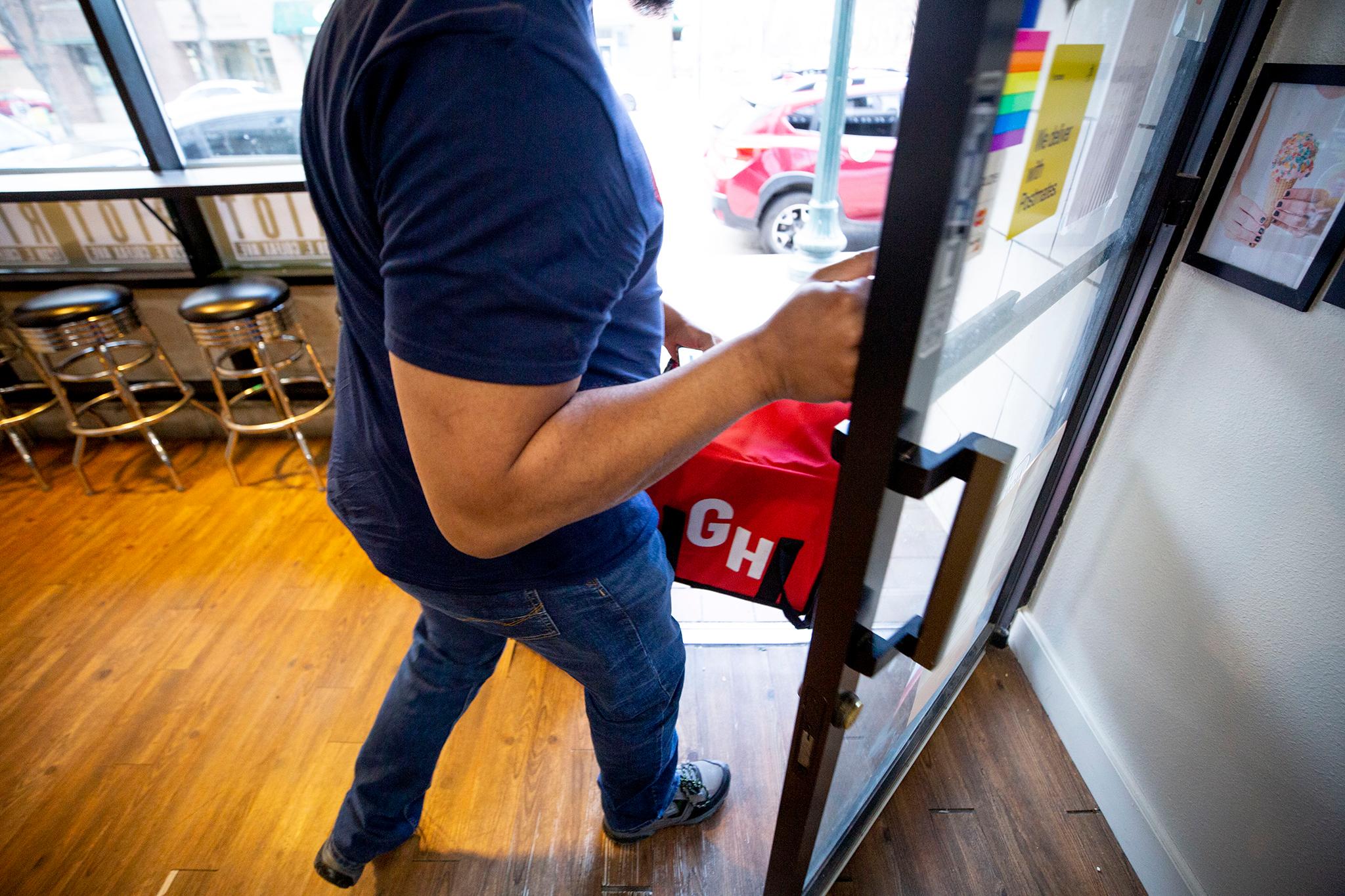
Restaurant owners have complained for years that food delivery apps like GrubHub and DoorDash are co-opting their business. The apps have posted restaurants’ menus and allowed people to order food for delivery by the apps’ drivers — without the restaurants’ permission.
The state legislature could make that illegal. A bill that has already passed several votes would require the services to get permission before selling a restaurant’s food.
“This protects a restaurant’s right to do business with those whom it chooses to conduct business with, and to have an opportunity to negotiate for the terms for the pick up and delivery of its food,” said Rep. Shannon Bird, a Democrat sponsoring the bill, during an earlier committee hearing.
The bill, SB-35, has gained support in both chambers of the legislature, but it hasn’t been fully approved yet. Sen. Robert Rodriguez, a Democrat from Denver, is co-sponsoring the legislation. A representative for the Colorado Restaurant Association said the group is “adamantly in support” of the change.
“This is an issue that restaurants have been calling us about for years,” said Nick Hoover, government affairs manager for CRA.
Outdated menus and lack of permission
Food delivery apps generally operate as gig platforms. A customer places an order with the platform, and then the platform arranges for a driver to pick up the food. In some cases, restaurants work directly with the services to list their food, and the platforms can send orders directly to the restaurants.
But in others, the services set up a restaurant for orders in their system without the knowledge or permission of the restaurant’s owners. Because there’s no formal arrangement, in some cases, the delivery driver must place the order when they arrive — resulting in a longer wait for the food.
“The restaurant might get a call later — the food was wrong, food was delivered late, food was different than what was on the third-party delivery company’s menu,” Hoover said. “That’s how they find out they’re on (the service), and then they have to spend time and effort to get taken off.”
Unauthorized deliveries are common across the fast-growing delivery industry. But restaurants have numerous problems with the system, Hoover said. They may not make their food for delivery, or they may want more control over the process. The unauthorized listings also may have outdated menus.
Restaurants can ask to be removed, and that’s gotten easier lately, Hoover said. But restaurateurs say the lack of control is hurting their reputations.
Another reason restaurants may not like certain food delivery apps is that the apps take a cut of the revenues. In Denver, city council members found delivery apps took as much as 35 percent of each customer's bill as a "commission," with independent restaurants taking the biggest hit. In response, and to stop apps from listing restaurants against their wishes, Denver limited both practices temporarily during the pandemic.
Some at the Capitol oppose a statewide policy change, though. Rep. Shane Sandridge, a Republican, argued that the restriction would limit customers’ options and the practice of free enterprise.
“You purchase something, and the business you purchase it from can block you from having a third party come pick it up,” he said, joking that the bill was part of a “war on hamburgers.” Customers might prefer the third-party services for price or other reasons, he said.
A similar law took effect in California this year, and these kinds of regulations could put a brake on the growth of food service apps. For example, only about 16 percent of the retailers on Postmates had a formal partnership with the company, according to The Wall Street Journal.
If the bill is passed in Colorado, it would go into effect later this year. Restaurant owners would be allowed to sue the platforms for $1,000, plus attorney fees, for each violation.
A representative for DoorDash said that the platform supports the change. The company previously announced that it would not add any more U.S. restaurants to its app without their owners' consent, adding that it would "clearly communicate to customers when we do not have a contractual relationship" with the restaurant. However, the new bill will also push platforms to proactively remove existing listings for restaurants when it doesn't have a contract.
"We commend efforts to both support local merchants and ensure that they are heard," wrote Briana Megid, a spokesperson for DoorDash, in an email.
Editor's note: This article was updated on May 19 with comment from DoorDash.









